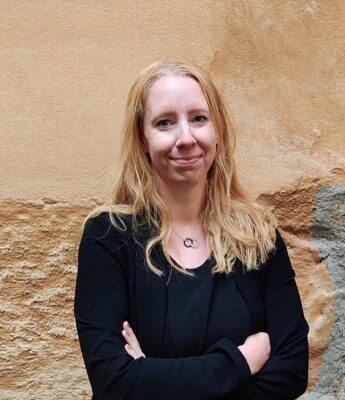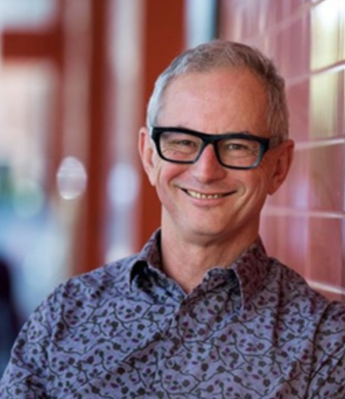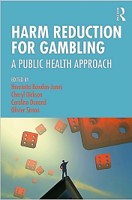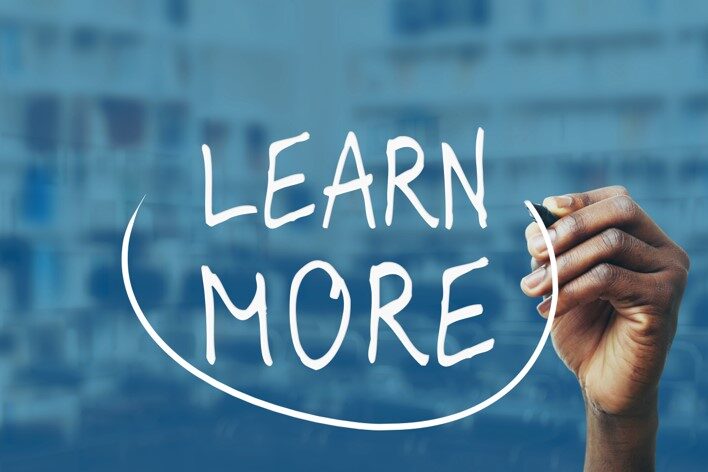Gambling News
Newsletter no. 1
EXCESSIVE GAMBLING: PROMOTING AND PROTECTING HEALTH IN A DIGITALISED WORLD
5th International Multidisciplinary Symposium
The event will take place from June 18th to 20th, 2025, in Caux, Switzerland. It will delve into the impact of new information and communication technologies on the prevention, research, and treatment of excessive gambling and addictive behaviours. This focus is anchored by the right to health, providing a clear framework for action.
For more details and to secure your spot, visit our website.
This newsletter is brought to you in anticipation of our 5th International Multidisciplinary Symposium. We'll keep you updated with conference-related content, including keynote speaker presentations, relevant articles, the latest news on gambling and public health, and much more.
We hope you enjoy reading our newsletter!
Focus on Two of Our Keynote Speakers

Virve Marionneau
Dr Virve Marionneau is the Director of the Centre for Research on Addiction, Control, and Governance (CEACG) at the University of Helsinki, Finland. CEACG conducts social scientific research on health-harming products, industries, and lifestyles and their regulation.
Virve's research focuses particularly on gambling harms, the regulation of gambling, and digital gambling environments. Currently, she is starting a new European Research Council-funded project on the sociology of digital markets of addictive products and industries.
Virve is a commissioner on the Lancet Public Health Commission on Gambling, a board member at the Advisory Board for Safer Gambling of the British Gambling Commission, and a member of the Gambling Harms Expert Group of the Finnish Ministry of Social Affairs and Health.
More details about her work can be found here.
More information about Virve's research centre CEACG can be found here.

Charles Livingstone
Dr Charles Livingstone is an Associate Professor in the School of Public Health and Preventive Medicine, Monash University. He teaches health policy, sociology and politics into undergraduate and postgraduate public health degrees. He is also head of the Gambling and Social Determinants unit within SPHPM. He has research degrees in economics and social theory.
Charles's current principal research interest is critical gambling studies, including gambling policy reform and the politics, regulation and social impacts of digitised gambling. Charles convenes the annual Dangerous Consumption colloquium, which he inaugurated in 2003. As an active advocate for reform of gambling regulation, he frequently contributes to public debate via popular media, notably around regulation of gambling using a critical public health framework. He is a current member of the World Health Organisation's Expert Group on Gambling and Gambling Disorder, and the Lancet Public Health Commission on Gambling. He was a member of the Australian Government’s Ministerial Expert Advisory Group on Gambling 2010-2012 and has made major contributions to gambling policy via official inquiries and advice to multiple Australian jurisdictions.
More details about his work can be found here.
CURRENT AFFAIRS
Below, you will find an inspiring collection of recent publications, related to the themes included in our upcoming symposium.
• Policy intervention (Victorian Responsible Gambling Foundation - Livingstone, Rintoul, de Lacy-Vawdon, Borland, Dietze et al., 2019):
An extensive Australian project has led to multiple recommendations to advance gambling harm prevention and minimisation policy and interventions. The project evaluates existing literature and practices to identify interventions and policy opportunities in a range of areas including, for example: structural characteristics of gambling products, pre-commitment and self-exclusion, interactive and pop-up messaging, affect, place of consumption and the social world of the gambler, industry influence on research. The project collaborators agreed that electronic gambling machine (EGM) and online/mobile wagering sectors were the most significant areas of concern around gambling harm, based on available data on rates of harm and population prevalence of use. Charles Livingstone (co-author) will be presenting these findings at our forthcoming symposium. The full report is available here.
• "The ways industry pursues influence with policy makers" (Adams, 2022).
This chapter describes the various strategies used by industries to influence governments - "Structural processes" are driven by the size and importance of a gambling company within an economy; "framing" allows for investing in ways of thinking and communicating that differ from public health measures aimed at addressing gambling harms; "professional processes" adopt conventional business practices to better position themselves with the government; "interpersonal processes" focus on strategies such as gifts and regular contacts to establish relationships of influence. Adams outlines three strategies to counter these processes: increasing transparency, challenging frames, and establishing points of independent accountability. Read the article here.
• "The end of 'Responsible Gambling': Reinvigorating gambling studies" (Livingstone, 2023).
Gambling research has been shaped by the concept of "responsible gambling" since the legalisation of gambling in the late 20th century, driven by neoliberal policies. As the negative consequences of gambling became evident, certain expert groups, framed these issues as individual pathologies, which became the main focus of research. However, this dominant framework has not effectively reduced harm or advanced knowledge. This paper calls for a critique of the prevailing perspectives and encourages the inclusion of diverse theoretical approaches in gambling research. One potential alternative is the "public health" perspective, which challenges the existing "responsible gambling" narrative. Adopting a critical public health approach could lead to the expansion of research, better regulation, and more effective prevention of harm. Read the article here.
• "Gambling harm prevention and harm reduction in online environments: A call for action" (Marionneau, Ruohio, & Karlsson, 2023).
The digitalisation of gambling introduces new challenges for harm prevention, increasing risks such as easy access, game speed, and data-driven personalisation. This paper reviews strategies for harm reduction in online gambling, emphasising the need for multi-level, multi-modal interventions. It argues that the same digital tools used by gambling providers should also be applied for prevention to better address public health-related harms caused by online gambling. Read the article here.
• "The benefits and challenges of online player tracking" (Delfabbro, 2024).
This paper discusses how player tracking analyses can impact safer gambling and research practices. This article highlights debates around player privacy and data integrity raised by mandatory single-player models. Additionally, it addresses challenges related to centralised controls in multi-operator settings and the preference for dynamic behaviour monitoring focused on risk, rather than static compliance models with set limits. Read the article here.
• "Public health approaches to gambling: A global review of legislative trends" (Ukhova, Marionneau, Nikkinen & Wardle, 2024).
Although gambling-related harm is recognised as a health and wellbeing issue in most countries, the focus is almost exclusively on individual harm rather than on social, economic, or third-party harm. Most of the prevention strategies have focused on individual responsibility, while gambling policies call for comprehensive action. Read the article here.
• "Review into gambling-related harms" (The Lancet Public Health Commission on Gambling - Wardle, Degenhardt, Marionneau, Reith, Livingstone, et al., 2024).
This work recognises the complexity of the commercial ecosystem for gambling and its digital transformation, and identifies the interfaces between the social, commercial, legal, and political determinants of health. The Commission recognises gambling as a significant public health issue (alike to alcohol and tobacco) and calls upon governments and policymakers to recognise it as such. Recommendations focus on ways to prevent and reduce the harms associated with gambling. Read the article here.
What's On ?

Introducing our unit
The Centre du Jeu Excessif (CJE) is a unit affiliated with the Addiction Medicine Service at the Centre Hospitalier Universitaire Vaudois (CHUV) in Lausanne, Switzerland. The CJE addresses public health needs through prevention, training, research, and treatment. It works with various target groups, notably through a program aimed at preventing addictive behaviours in schools. The CJE provides guidance to authorities on structural prevention and helps network key stakeholders in the field. It contributes to the education and training of health professionals and raises awareness among staff at gambling venues, in line with the Swiss Gambling Act (LJAr). The CJE also carries out expert mandates for research and evaluation. Clinically, it supports individuals within the Vaud network, offering secondary-level interventions, addiction consultations, and specialised social and therapeutic follow-up. The CJE is the designated service in the Canton of Vaud for preventive interventions related to the lifting of exclusions.
 Want to read more about the key issues related to prevention and harm reduction? Our collective book, Harm Reduction for Gambling: A Public Health Approach was written by key international experts and is available to buy here.
Want to read more about the key issues related to prevention and harm reduction? Our collective book, Harm Reduction for Gambling: A Public Health Approach was written by key international experts and is available to buy here.
Find Out More

UK charity project
"Every day someone in the UK takes their life because of gambling and up to 1.4 million adults are addicted, with 80,000 children addicted or at-risk. Despite this, only 0.5% of people experiencing gambling harms who may benefit from treatment and support are accessing it. In response the charity, Gambling with Lives (GwL) have launched “Chapter One”, to ensure people can get the right information and help for gambling harms much earlier". Find out more here.
Addiction audio podcast
Featuring Louise Nadeau, Professor of Psychology, University of Montréal. Perspectives on gambling from 1561 with Louise Nadeau - Addiction Audio | Acast
Inside America's first video game addiction rehab (HBO)
Have Your Say

Do you have any feedback or want to take part in this newsletter? Please contact Cheryl Dickson at dr.cheryldickson@live.com